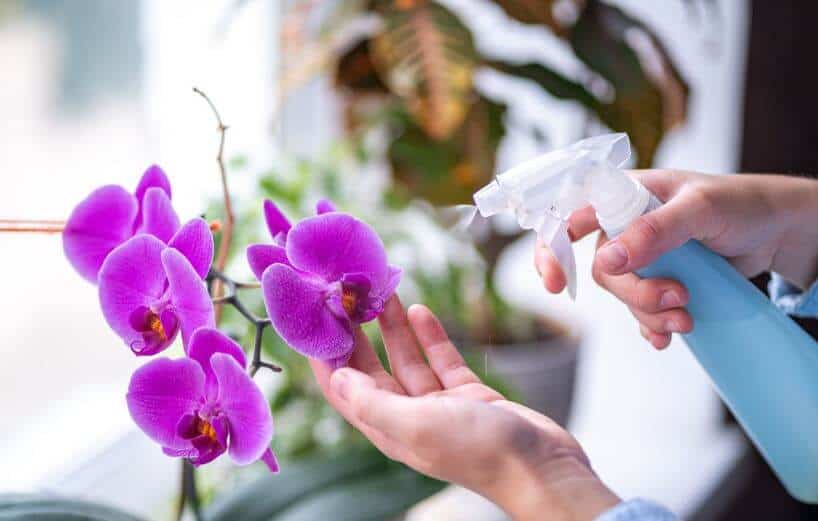Last Updated on July 12, 2023 by a Friendly Gardener
To mist or not to mist? Information regarding the misting of orchids can be quite controversial. There are almost as many opinions as there are orchids with home gardeners siding either for or against the idea. Before deciding for or against, consider what the orchids themselves prefer.
The Pros of Misting Orchids
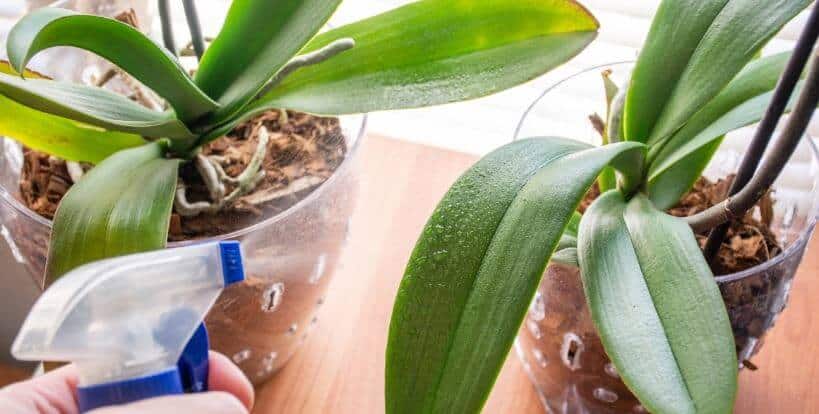
The natural habitats of orchids are both hot and humid, yet as epiphytic plants they do not sit in water and when left to do so are subject to root rot. This is also a risk if your growing medium is too wet. Yet, one of the pros of misting an orchid is that it simulates to some extent this plant’s natural and preferred environment. Orchids grow in rainforests revealing where humidity levels are high. When you mist your orchid, the humidity in the immediate area increases
Orchids also feed and drink moisture in the air using their aerial roots. Misting will increase their possibility to drink but also to eat if you use a foliar fertilizing spray n the leaves. Misting orchids can facilitate an orchid’s nourishment as it can absorb the water it requires to thrive.
Are There Any Cons to Misting Orchids?
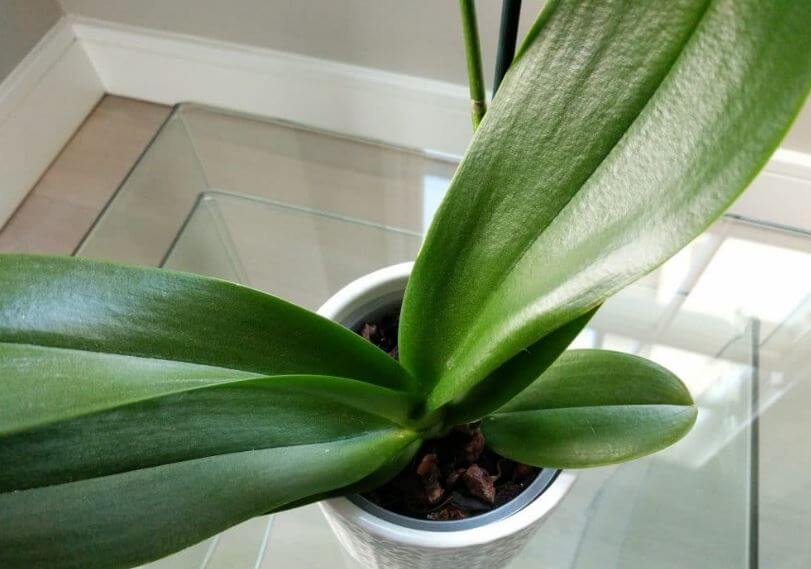
Where there are benefits, there are bound to be a few negatives. When left in direct sunlight, water droplets can contribute to leaf scarring. Misting can also leave unattractive watermarks on the plant’s foliage. Cleaning watermarks from leaves can be quite time-consuming.
Water droplets can also facilitate the development of fungus spots on foliage. If droplets do not evaporate quickly, this can create the perfect environment for fungal infections to develop.
Crown rot is another risk associated with regular misting. When moisture enters the leaf base and enters the stem, it can cause it to rot from the inside. If crown root develops, expect to see aerial roots and flower spikes rot and fall off. This is a dangerous situation, as it is almost impossible to save an orchid plant afflicted by crown rot.
Do Blooming Orchids Need Misting?
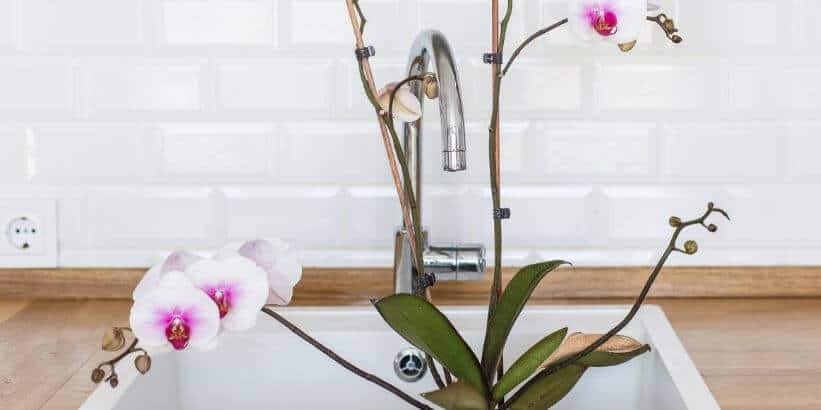
If you mist blooming orchids, it is not harmful to the flowers however it is not necessary. The orchid flowers will not absorb moisture for the plant.
The Importance of Humidity
In their natural habitats, rainforests benefit from exceptionally high humidity levels and nice warm temperatures. Still, if your indoor temperature is not overly warm but your plant enjoys high humidity in its location from misting or other techniques, this also can present problems. Excessive humidity can lead to bacterial and fungal infections if not accompanied by a hot climate.
A lack of humidity can cause your plant to dehydrate, causing leaves to wrinkle. Orchids thrive in environments where humidity levels are kept between 40% and 70%. Undoubtedly, misting can contribute to maintaining a humid and somewhat moist environment, but to prevent rotting caused by excessive moisture, air ventilation needs to be factored in. If the airflow is inexistent, your orchid will be at risk for crown or root rot.
If you are misting solely for the humidity benefit, there are alternatives to raising humidity levels without favoring the potential rotting of the plant.
What Is the Best Way to Water Orchid Plants
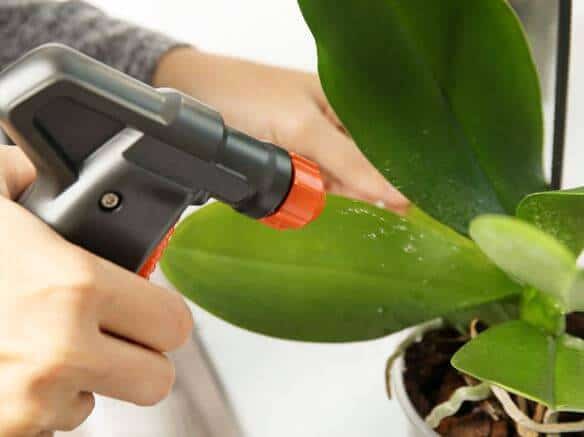
The key to a happy orchid plant is environmental humidity, and watering can help with this. The best way to water an orchid plant will depend on the type of plant that you are cultivating. Orchids can be top watered as if in a rain shower. You can use a light shower spray for about ten minutes, making sure to allow all excess water to drain thoroughly from the plant’s container. During drainage, make it a point to wipe excess water from foliage to avoid watermarks forming and to prevent too much water from resting in the nooks where leaves are joined to the stems.
If you prefer a good soaking, place your orchid and its container in a tub or sink of water for approximately ten minutes. This will permit the growing medium to absorb all the water your plant needs, and root systems will be amply hydrated. After ten minutes remove the plant from the water and let it drain completely.
Methods for Raising Humidity Levels
If you want to raise environmental humidity levels, there are a couple of methods aside from misting. You can acquire a space humidifier or opt to create a pebble tray for your plant. Fill a tray with rocks or pretty stones. Pour water into your rock tray and place the orchid container on top of the rock tray. The orchid pot should not touch the water. The water between the rocks in the tray will evaporate keeping the area around the plant humid.
Water Quality
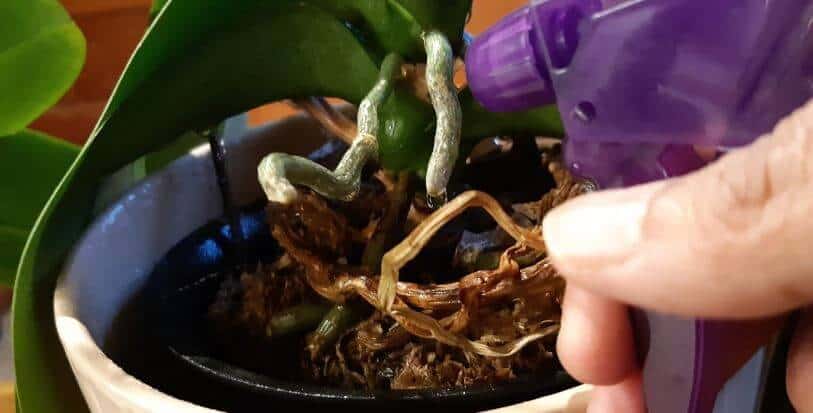
Whether you mist, top water, or do a soak, factor in the water quality. The best water for hydrating your orchids is collected rainwater. Rainwater contains organic matter such as pollen that is nourishment for your plant.
If you live in an area that is heavily polluted, collecting rainwater is a bad idea as there may be damaging chemicals in the air. If you cannot collect clean rainwater, you can use municipal tap water. Tap water, however, needs to be left out overnight so that eventual chemicals or minerals can evaporate. Leaving water out will also help regulate the temperature.
Another option is distilled water which can be expensive especially if you have more than one plant. Reverse osmosis units will also purify as much water as you want if you wish to invest in one. Do take care with using spring water. It may be alkaline and lacking in magnesium and calcium. Salt levels can also measure high in spring water.
In Conclusion
Should I mist my orchid daily? Do orchids even need misting? It is not essential to mist an orchid for its survival. However, misting your plant can be helpful if your indoor humidity tends to be low.

